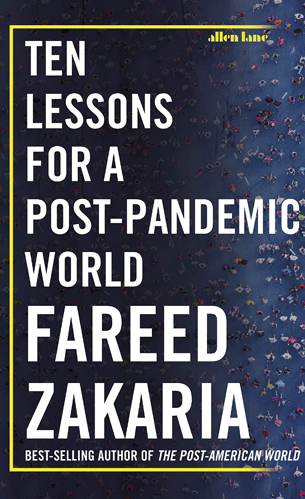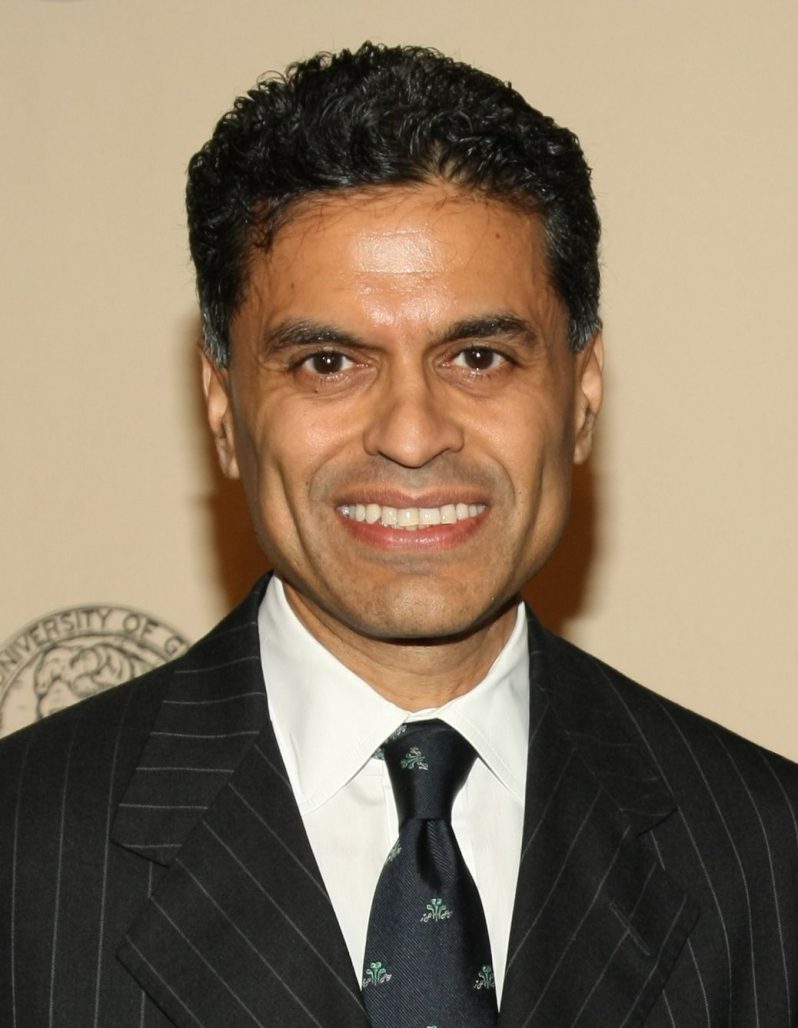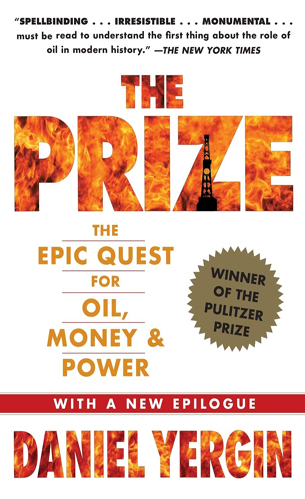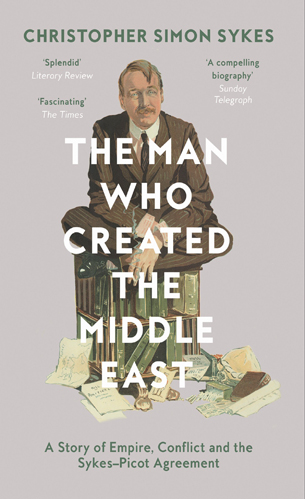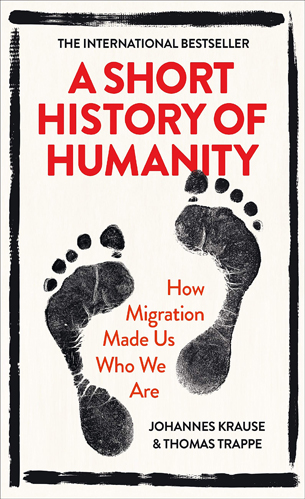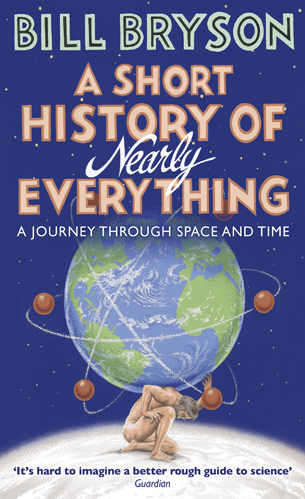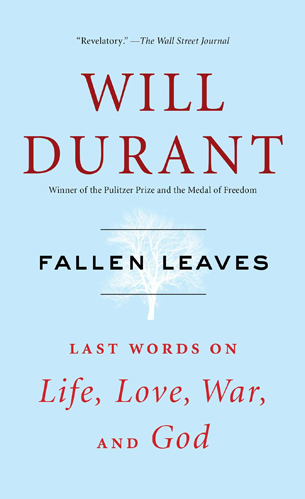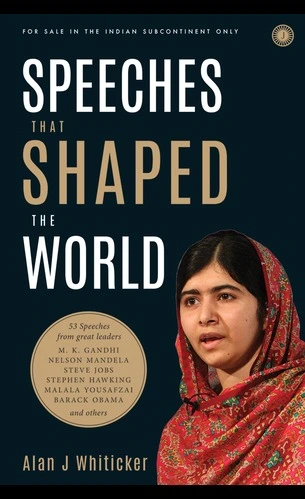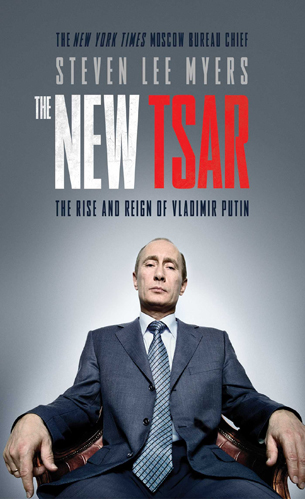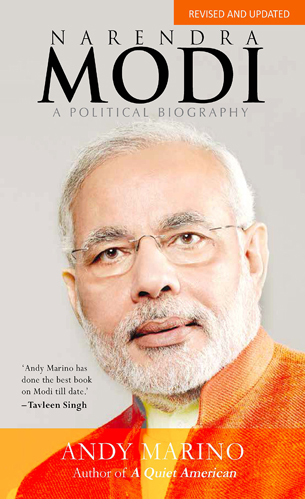Category
- Discounted Books
- English Book Bundles
- University Magazines
- சிறுவர்களுக்கான புத்தகங்கள்
- Children Books
- English Books
- Current Affairs
- Military & Intelligence
- Short Stories
- Fiction
- Poetry
- Environment & Nature
- Science
- Medicine
- Linguistics
- Atheism & Agnosticism
- (Auto)Biography & Memoir
- Business & Management
- Creativity
- Economics
- Education & Research
- Health & Nutrition
- History
- Humor
- Love & Relationships
- Parenting
- Personal Development
- Personal Finance
- Philosophy
- Politics
- War
- Psychology
- Religion & Spirituality
- Society & Culture
- Sports
- Travel & Adventure
- Technology & the Future
- True Crime
- Women Empowerment
- தமிழ் Books
- Book Bundles ( தமிழ் )
- சட்டம்
- இயற்கை
- கட்டுரை
- கணிதம்
- பயணக்குறிப்புகள்
- விவசாயம்
- அரசியல்
- ஆரோக்கியம்
- உளவியல்
- புனைவு
- காதல் மற்றும் உறவு
- சமூகவியல்
- சுயசரிதைகள் மற்றும் நினைவுகள்
- சுயமுன்னேற்றம்
- தத்துவஞானம்
- தொழில்நுட்பம் & எதிர்காலம்
- பொருளாதாரம்
- போர்
- பணம்
- மதம் & ஆன்மீகம்
- வணிகம் & மேலாண்மை
- வரலாறு
- விஞ்ஞானம் & பிரபல அறிவியல்
- விளையாட்டு
- சினிமா
- கவிதைகள்
- குழந்தை வளர்ப்பு
- குற்றம்
- மருத்துவம்
- மொழி
Product categories
- Children Books
- Discounted Books
- English Book Bundles
- English Books
- (Auto)Biography & Memoir
- Atheism & Agnosticism
- Business & Management
- Creativity
- Current Affairs
- Economics
- Education & Research
- Environment & Nature
- Fiction
- Health & Nutrition
- History
- Humor
- Linguistics
- Love & Relationships
- Medicine
- Military & Intelligence
- Parenting
- Personal Development
- Personal Finance
- Philosophy
- Poetry
- Politics
- Psychology
- Religion & Spirituality
- Science
- Short Stories
- Society & Culture
- Sports
- Technology & the Future
- Travel & Adventure
- True Crime
- War
- Women Empowerment
- University Magazines
- சிறுவர்களுக்கான புத்தகங்கள்
- தமிழ் Books
- Book Bundles ( தமிழ் )
- அரசியல்
- ஆரோக்கியம்
- இயற்கை
- உளவியல்
- கட்டுரை
- கணிதம்
- கவிதைகள்
- காதல் மற்றும் உறவு
- குற்றம்
- குழந்தை வளர்ப்பு
- சட்டம்
- சமூகவியல்
- சினிமா
- சுயசரிதைகள் மற்றும் நினைவுகள்
- சுயமுன்னேற்றம்
- தத்துவஞானம்
- தொழில்நுட்பம் & எதிர்காலம்
- பணம்
- பயணக்குறிப்புகள்
- புனைவு
- பொருளாதாரம்
- போர்
- மதம் & ஆன்மீகம்
- மருத்துவம்
- மொழி
- வணிகம் & மேலாண்மை
- வரலாறு
- விஞ்ஞானம் & பிரபல அறிவியல்
- விளையாட்டு
- விவசாயம்
Ten Lessons for a Post-Pandemic World
Rs. 2,890.00 Original price was: Rs. 2,890.00.Rs. 2,490.00Current price is: Rs. 2,490.00.

Fareed Zakaria
Since the end of the Cold War, the world has been shaken to its core three times. 11 September 2001, the financial collapse of 2008 and – most of all – Covid-19. Each was an asymmetric threat, set in motion by something seemingly small, and different from anything the world had experienced before. Lenin is supposed to have said, ‘There are decades when nothing happens and weeks when decades happen.’ This is one of those times when history has sped up.
In this urgent and timely book, Fareed Zakaria, one of the ‘top ten global thinkers of the last decade’ (Foreign Policy), foresees the nature of a post-pandemic world: the political, social, technological and economic consequences that may take years to unfold. In ten surprising, hopeful ‘lessons’, he writes about the acceleration of natural and biological risks, the obsolescence of the old political categories of right and left, the rise of ‘digital life’, the future of globalization and an emerging world order split between the United States and China. He invites us to think about how we are truly social animals with community embedded in our nature, and, above all, the degree to which nothing is written – the future is truly in our own hands.
Ten Lessons for a Post-Pandemic World speaks to past, present and future, and will become an enduring reflection on life in the early twenty-first century.
Out of stock
Notify me when stock available
About the Author
- Hardcover : 320 pages
Related products
-
The Prize: The Epic Quest for Oil, Money & Power
Rs. 6,790.00Original price was: Rs. 6,790.00.Rs. 5,990.00Current price is: Rs. 5,990.00.or 3 X Rs.1,996.67 with Read more
Read moreDaniel Yergin
Winner of the Pulitzer Prize and hailed as “the best history of oil ever written” by Business Week, Daniel Yergin’s “spellbinding…irresistible” (The New York Times) account of the global pursuit of oil, money, and power addresses the ongoing energy crisis.
“Splendid and epic history of oil…. The story is brilliantly told…with its remarkable cast of characters.” — The Wall Street Journal
“Impassioned and riveting…only in the great epics of Homer will readers regularly run into a comparable string of larger-than-life swashbucklers and statesmen, heroes and villains.” — San Francisco Examiner
“A masterly narrative…The Prize portrays the interweaving of national and corporate interests, the conflicts and stratagems, the miscalculations, the follies, and the ironies.” — James Schlesinger, former U.S. Secretary of Defense and U.S. Secretary of Energy
“Spellbinding…irresistible…monumental…must be read to understand the first thing about the role of oil in modern history.” — The New York Times
-
The Man Who Created the Middle East: A Story of Empire, Conflict and the Sykes-Picot Agreement
Rs. 2,990.00or 3 X Rs.996.67 with Read more
Read moreChristopher Simon Sykes
At the age of only 36, Sir Mark Sykes was signatory to the Sykes-Picot agreement, one of the most reviled treaties of modern times. A century later, Christopher Sykes’ lively biography of his grandfather reassesses his life and work, and the political instability and violence in the Middle East attributed to it.
The Sykes-Picot agreement was a secret pact drawn up in May 1916 between the French and the British, to divide the collapsing Ottoman Empire in the event of an allied victory in the First World War. Agreed without any Arab involvement, it negated an earlier guarantee of independence to the Arabs made by the British. Controversy has raged around it ever since.
Sir Mark Sykes was not, however, a blimpish, ignorant Englishman. A passionate traveller, explorer and writer, his life was filled with adventure. From a difficult, lonely childhood in Yorkshire and an early life spent in Egypt, India, Mexico, the Arabian desert, all the while reading deeply and learning languages, Sykes published his first book about his travels through Turkey aged only twenty. After the Boer War, he returned to map areas of the Ottoman Empire no cartographer had yet visited. He was a talented cartoonist, excellent mimic and amateur actor, gifts that ensured that when elected to parliament a full House of Commons would assemble to listen to his speeches.
During the First World War, Sykes was appointed to Kitchener’s staff, became Political Secretary to the War Cabinet and a member of the Committee set up to consider the future of Asiatic Turkey, where he was thirty years younger than any of the other members. This search would dominate the rest of his life. He was unrelenting in his pursuit of peace and worked himself to death to find it, a victim of both exhaustion and the Spanish Flu.
Written largely based on the previously undisclosed family letters and illustrated with Sykes’ cartoons, this sad story of an experienced, knowledgeable, good-humoured and generous man once considered the ideal diplomat for finding a peaceful solution continues to reverberate across the world today.
-
A Short History of Humanity: How Migration Made Us Who We Are
Rs. 2,790.00or 3 X Rs.930.00 with Read more
Read moreJohannes Krause & Thomas Trappe
A highly readable, personal guide to the twists and turns in unravelling ancient DNA: Krause and Trappe expertly unravel the story of ancient DNA to reveal how the new field of archaeogenetics has utterly transformed understanding of our deep past. ― Rebecca Wragg Sykes, author of Kindred: Neanderthal Life, Love, Death, and Art
A Short History of Humanity is an eloquent and timely reminder that viruses and other pathogens of infectious disease are merely fellow-travellers in an epic journey that began when the first human migrants left Africa around 200,000 years ago. The solution to pandemics is not to close borders in the hope of keeping viruses out but to recognise that we are a fundamentally peripatetic species united in our shared genetic inheritance and common humanity. ― Mark Honigsbaum, author of A Pandemic Century
A valuable contribution to our understanding of who we are and how we got here. ― Tim Marshall, bestselling author of Prisoners of Geography
One of those books that stops you dead in your tracks and makes you say out loud – why didn’t I know that before? So easy to read. So logically argued. So satisfyingly sensible and thought-provoking. Read it, think about it, and then read it again. An absolute revelation. ― Professor Sue Black, bestselling author of All That Remains
Extremely enriching. Rarely, have I been able to learn so much and get such radically new insights over 250 pages ― Süddeutsche Zeitung
-
A Short History of Nearly Everything: A Journey through Space and Time
Rs. 3,490.00or 3 X Rs.1,163.33 with Read more
Read moreBill Bryson
- Best-Selling Popular Science book of the 21st Century
- Samuel Johnson Prize for Non-Fiction Nominee (2004)
- EU Descartes Prize for science communication (2005)
- J. A. Hollon palkinto Winner (2006)
- The Aventis Prizes for Science Books for best general science book (2004)
The ultimate eye-opening journey through time and space, A Short History of Nearly Everything is the biggest-selling popular science book of the 21st century and has sold over 2 million copies.
‘Truly impressive…It’s hard to imagine a better rough guide to science.’ Guardian
‘A travelogue of science, with a witty, engaging, and well-informed guide‘ The Times
Mr Bryson has a natural gift for clear and vivid expression. I doubt that a better book for the layman about the findings of modern science has been written ― Sunday Telegraph
A fascinating idea, and I can’t think of many writers, other than Bryson, who would do it this well. It’s the sort of book I would have devoured as a teenager. It might well turn unsuspecting young readers into scientists. And the famous, slightly cynical humour is always there ― Evening Standard
A genuinely useful and readable book. There is a phenomenal amount of fascinating information packed between its covers … A thoroughly enjoyable, as well as educational, experience. Nobody who reads it will ever look at the world around them in the same way again ― Daily Express
Of course, there are people much better qualified than Bill Bryson to attempt a project of this magnitude. None of them, however, can write fluent Brysonese, which, as pretty much the entire Western reading public now knows, is an appealing mixture of self-deprecation, wryness and punnery ― Spectator
The very book I have been looking for most of my life… Bryson wears his knowledge with aplomb and a lot of very good jokes ― Daily Mail
-
Fallen Leaves: Last Words on Life, Love, War, and God
Rs. 2,790.00Original price was: Rs. 2,790.00.Rs. 2,290.00Current price is: Rs. 2,290.00.or 3 X Rs.763.33 with Read more
Read moreWill Durant
Praised as a “revelatory” book by The Wall Street Journal, this is the last and most personal work of Pulitzer Prize–winning author and historian Will Durant, discovered thirty-two years after his death.
“Fallen Leaves is in some ways a slight book. But it is also a revelatory one. Most of Durant’s work is about the thoughts and actions of others. Fallen Leaves is very much about the thoughts of Will durant concerning—well, almost everything. You’ll find short essays on childhood, old age, death, war, politics, capitalisn, art, sex, God and morality. … Above all, Fallen Leaves is a portrait of a sensibility. … Durant was a remarkable specimen of that nearly extinct species, a civilized liberal of wide learning and even wider sympathy for the fundamentals of human aspiration.” ― The Wall Street Journal
“Short but persuasive commentaries on a diversity of topics from a respected scholar of humanity.” ― Kirkus Reviews
“Some passages, such as his observations on youth and middle age, are personal and specific, while others, such as his ruminations on the existence of God, border on philosophy. . . . [And others] still carry a beneficial sting, such as his thoughts on war and nationalism and his plea for racial harmony (Durant’s civil rights advocacy dated back to 1914). . . . a thought-provoking array of opinions.” ― Publishers Weekly
“Some of his musings are provocative, even outrageous…this is a work that demands we think, and it is a worthy conclusion to a long and distinguished career.” ― Booklist
-
Speeches that Shaped the World
Rs. 1,690.00or 3 X Rs.563.33 with Read more
Read moreAlan J. Whiticker
53 Speeches from great leaders M. K. GANDHI, NELSON MANDELA, STEVE JOBS, STEPHEN HAWKING, MALALA YOUSAFZAI, BARACK OBAMA and others. The passing of time allows many speeches to take on a deeper meaning and poignancy. Others have become an iconic part of our times.
Alan J. Whiticker’s Speeches that Shaped the World is a collection of the most potent and memorable speeches throughout history. These speeches highlight recurring themes such as politics and power, war and peace, civil rights and human rights. What they all have in common is the power to inspire—emotionally, politically and socially.In this brilliant collection, many of history’s greatest orators and pivotal moments are featured. These speeches shaped and changed the world. Different eras and many nations are represented, with several speeches from famous women—speeches of clarity and hope. Along with famous names like John F. Kennedy, Martin Luther King, Franklin D. Roosevelt, Winston Churchill, Mahatma Gandhi, Nelson Mandela, Margaret Thatcher and Hillary Clinton there are also lesser known orators who are remembered for making their mark on history.
-
The New Tsar: The Rise and Reign of Vladimir Putin
Rs. 2,690.00or 3 X Rs.896.67 with Read more
Read moreSteven Lee Myers
“Steven Lee Myers’s The New Tsar is not the first biography of Putin, but it is the strongest to date. Judicious and comprehensive, it pulls back the veil… from one of the world’s most secretive leaders. What is most striking, given the aura of steely consistency that Putin cultivates, is how he has changed over the years…. The great strength of Myers’s book is the way it shows how chance events and Putin’s own degeneration gradually cleared the path to the Ukraine crisis… Putin emerges as neither a KGB automaton, nor the embodiment of Russian historical traditions, nor an innocent victim of Western provocations and NATO’s hubris, but rather as a flawed individual who made his own choices at crucial moments and thereby shaped history.” —Daniel Treisman, The Washington Post
“What Steven Lee Myers gets so right in The New Tsar, his comprehensive new biography — the most informative and extensive so far in English — is that at bottom Putin simply feels that he’s the last one standing between order and chaos… What Myers offers is the portrait of a man swinging from crisis to crisis with one goal: projecting strength… A knowledgeable and thorough biography… Putin himself now represents the chaos he so abhors — the chaos that will surely come in his wake.” —Gal Beckerman, The New York Times Book Review
“Combining skilled story telling, psychological examination and political investigation, Steven Lee Myers succeeds brilliantly in this biography of Vladimir Putin. Explaining the dangers that Putin’s Russia may and does pose, Myers effortlessly and expertly guides the reader through the complexities of the Russian Byzantine governing style and the country’s politics and identity. In the end, the book provides one of the most comprehensive answers to a puzzling question: Despite all the changes that Russia has gone through during communism and post-communism, why is it still an empire of the tsar?” —Nina Khrushcheva
“Personalities determine history as much as geography, and there is no personality who has had such a pivotal effect on 21st century Europe as much as Vladimir Putin. The New Tsar is a riveting, immensely detailed biography of Putin that explains in full-bodied, almost Shakespearean fashion why he acts the way he does.” –Robert D. Kaplan
“The reptilian, poker-faced former KGB agent, now Russian president seemingly for life, earns a fair, engaging treatment in the hands of New York Times journalist Myers… [who] clearly knows his material and primary subject… Putin used the perks of power to create a complex system of cronyism and nepotism. Myers shows how Putin convinced everyone that this way of operating was part of the Russian soul and how he perpetuated it through an archaic form of Russian corruption… Myers astutely notes how Putin’s speeches increasingly harkened back to the worst period of the Cold War era’s dictates by Soviet strongmen… A highly effective portrait of a frighteningly powerful autocrat.” –Kirkus (starred review)
-
Narendra Modi: A political Biography
Rs. 2,690.00Original price was: Rs. 2,690.00.Rs. 2,390.00Current price is: Rs. 2,390.00.or 3 X Rs.796.67 with Read more
Read moreAndy Marino
‘Andy Marino has done the best book on Modi to date. It is the only biography that gives an unbiased view of who Modi is.’ –Tavleen Singh
‘This political biography analyses the contrasting views on the Gujarat model of governance with detailed statistical inputs to provide a balanced account. Personal details of Modi’s early life, his rise through the political ranks, and his personal philosophy on religion and politics are revealed in this fast-paced, revelatory and readable book.” – The Financial Express
*Containing exclusive details… this book strives to present a fair picture of the man behind Gujarat’s transformation. [The] biography promises to give readers an insight into the inner workings of Modi’s methods of governance.’ — The New Indian Express, Chennai
‘Andy Marino’s biography stands out in providing a balanced and factually objective account.’ — Deepak Lal, James S. Colman Professor Emeritus of International Development Studies at the University of California, Los Angeles, in Financial Times, London
‘The uniqueness of Andy Marino’s portrayal is that he has got the subject himself to talk about his life and times. (He) throws light on key details most other biographers have either consciously avoided or just glossed over … . [The] most holistic biography of Narendra Modi since 2002.’ — Abhiram Ghadyalpatil
-
Mossad: The Great Operations of Israel’s Secret Service
Rs. 2,690.00or 3 X Rs.896.67 with Read more
Read moreMichael Bar-Zohar & Nissim Mishal
The Mossad is universally recognized today as the greatest intelligence service in the world. It is also the most enigmatic one, shrouded in a thick veil of secrecy. Many of its fascinating feats are still unknown; most of its heroes remain unnamed. Here, for the first time the veil is lifted by two Israeli authors.
From the famous cases – – the kidnapping of Eichmann from Argentina, the systematic tracking down of those responsible for the Munich Massacre – to lesser-known episodes, shrouded in darkness, this extraordinary book describes the dramatic, largely secret history of the Mossad, and the Israeli intelligence community. It examines the covert operations, the targeted assassinations, the paramilitary operations within and outside Israel. It also reveals the identities of the best Mossad agents and leaders, whose personal stories are interwoven with the great Mossad operations.
-
Guns, Germs, and Steel: The Fates of Human Societies
Rs. 2,990.00or 3 X Rs.996.67 with Read more
Read moreJared Diamond
- New York Times Bestseller
- Pulitzer Prize for General Nonfiction (1998)
- Royal Society Science Book Prize for General Prize (1998)
- California Book Award for Nonfiction (Gold) (1997)
- Puddly Award for History (2001)
- Phi Beta Kappa Award in Science (1997)
‘A book of big questions, and big answers‘ Yuval Noah Harari, bestselling author of Sapiens
“Artful, informative, and delightful…. There is nothing like a radically new angle of vision for bringing out unsuspected dimensions of a subject, and that is what Jared Diamond has done.” ― William H. McNeil, New York Review of Books
“An ambitious, highly important book.” ― James Shreeve, New York Times Book Review
“A book of remarkable scope, a history of the world in less than 500 pages which succeeds admirably, where so many others have failed, in analyzing some of the basic workings of culture process…. One of the most important and readable works on the human past published in recent years.” ― Colin Renfrew, Nature
“The scope and the explanatory power of this book are astounding.”
― The New Yorker“No scientist brings more experience from the laboratory and field, none thinks more deeply about social issues or addresses them with greater clarity, than Jared Diamond as illustrated by Guns, Germs, and Steel. In this remarkably readable book he shows how history and biology can enrich one another to produce a deeper understanding of the human condition.” ― Edward O. Wilson, Pellegrino University Professor, Harvard University
“Serious, groundbreaking biological studies of human history only seem to come along once every generation or so. . . . Now [Guns, Germs, and Steel] must be added to their select number. . . . Diamond meshes technological mastery with historical sweep, anecdotal delight with broad conceptual vision, and command of sources with creative leaps. No finer work of its kind has been published this year, or for many past.” ― Martin Sieff, Washington Times
“[Diamond] is broadly erudite, writes in a style that pleasantly expresses scientific concepts in vernacular American English, and deals almost exclusively in questions that should interest everyone concerned about how humanity has developed. . . . [He] has done us all a great favor by supplying a rock-solid alternative to the racist answer. . . . A wonderfully interesting book.” ― Alfred W. Crosby, Los Angeles Times
“An epochal work. Diamond has written a summary of human history that can be accounted, for the time being, as Darwinian in its authority.” ― Thomas M. Disch, The New Leader

